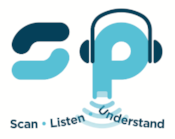Dyslexia & Foreign Learning
Head of Education, Julia Clouter shares her tips for identifying dyslexia in a foreign learning environment.
Let's imagine that Kupek, a monolingual boy, has joined your class and his language acquisition is quite good, but his progression and response is not as you expected. Your spider-senses are tingling, and you are wondering how to go about investigating the possibility of a cognitive learning difference.
Things that will have alerted you may have been his lack of expected progress or behavioural issues. Another clue will be difficulties in his ability to sequence ideas or speed of retrieval from his short-term memory.
Identifying a SpLD is tricky, particularly if you do not share Kupek's first language. Start to keep some notes about the concerns that you are having and if you can, ask the SENCo, or Pastoral Team at your school for more information about his background. There may be issues that could account for the language learning difficulties that you have been noticing.
Image: Unsplash
Things to keep in mind are cultural, linguistic and emotional issues that may mimic the signs of a specific learning difference. You are looking for odd interaction patterns. Remember though, that what you are seeing could be due to different cultural norms, for example a difference in eye contact and turn taking. Lack of phonological processing could be due to the mechanics of transferring phonological knowledge from his first language.
Common errors in monolingual foreign language learners make can look very similar to SpLD. You may expect to see words in the wrong order, sentences that run into each other, missing prepositions and articles. Also, common words that have been misspelt in written work.
To best help Kupek, show him that you are interested in his learning journey. Give lots of encouragement and praise, talk though his learning experience and nurture his self-esteem.
Your next step is to conduct some assessment work. Even if you are going to be working in an informal way. Your interest and commitment to investigate could have a really positive impact on Kupek's perception of himself as a learner.
Start your assessment by creating a regular schedule of observation and keeping records.
You may want to use your Teaching Assistant to help you with this.
Key points to look for are:
· Speed of processing issues - how much time is needed to complete tasks or formulate answers?
· Are interactions unusual - even accounting for other cultural norms?
· Are you observing intolerance to changes in the environment - to light, temperature or noise?
· Does he seem fidgety or physically uncomfortable - tugging at clothes, fiddling?
· Are there coordination issues - irregular handwriting?
· Are there regular organisational or sequencing issues - arriving late to lessons, muddled equipment?
Any of the above in combination are an indicator of SpLD.
Use your observation notes to discuss the patterns of behaviour you are seeing with your colleagues.
If you are still concerned you may want to talk to Kupek's parents about any previous learning experiences to help you to understand the bigger picture.
The next step may be to conduct more formal diagnostic testing. There are assessment materials that have been designed specifically for multilingual learners.
Or, you may want to try more holistic assessments, these could include:
· Reading text aloud in the first language - observe for confidence and fluency.
· Check comprehension and understanding of inference - resolving pronouns, missing motivations or links between ideas and events.
· Use handwriting, spacing and motor control games to assess fine motor skills over a period of time.
· Memory games can be very helpful in gaining an understanding of learning capacity.
You have taken all the right steps in better supporting Kupek and have been pivotal in providing the foundation essential to starting standardised formal testing.
Talk to your SENCo who can coordinate support from the EAL or MDL team. Getting the right support in place for Kupek could change his life chances. For more information the ELT well website is a great place to start.
Scanning Pen’s ReaderPens are the perfect tool for foreign language speaking students, who have a learning disability such as dyslexia. Learn more by clicking here. http://www.readerpen.com/

